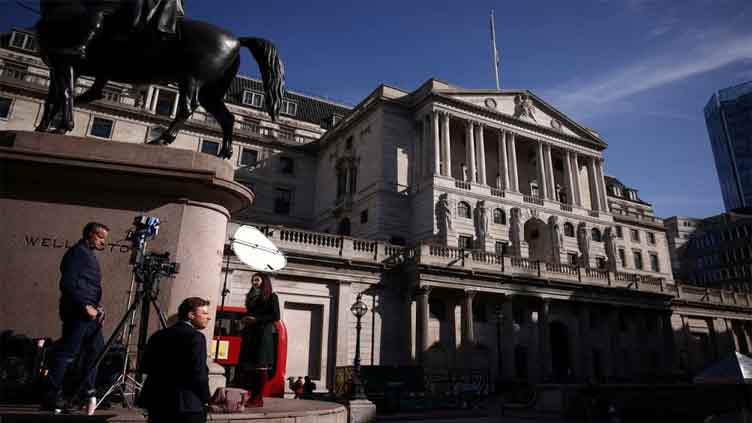Ex-officials say Bank of England was too slow to heed inflation warnings

Business
British inflation is more than double the rate in the US, much higher than in the Eurozone
LONDON (Reuters) – Two former Bank of England officials said the central bank was too slow to spot the signs of inflation's post-pandemic surge, adding to pressure on the BoE which is battling the fastest price growth of the world's big rich economies.
Former Deputy Governor Charlie Bean and Sushil Wadhwani, who also sat on the Monetary Policy Committee, pointed to the BoE's decision to stick with its huge bond-buying even when there were signs of an economic rebound from the COVID-19 lockdowns.
"They were certainly slow to wake up to the need to be withdrawing stimulus," Bean – the BoE's chief economist between 2000 and 2008 and who then served as deputy governor for six years – told lawmakers in Britain's parliament on Wednesday.
The central bank's bond-buying was justified early in the pandemic when financial markets were in disarray, but "my criticism would be that they stuck with it for longer than was appropriate," Bean said.
Read more: Why is UK food inflation so stubbornly high?
The BoE more than doubled the amount of British government bonds it held during the pandemic, reaching almost 900 billion pounds ($1.14 trillion) before it began to reduce the size of its balance sheet last year.
Governor Andrew Bailey and his MPC colleagues have said they wanted to be sure that Britain's economy did not suffer a shock when the government ended its pandemic job protection scheme in September 2021 before dialling back their stimulus.
But Bean said the case for continued stimulus at that point was weak especially when it became clear that half a million people had left the workforce which increased inflationary pressures in the economy.
"At that point they should have been moving, I think, a little more swiftly to be changing the stance of policy.
The BoE raised interest rates for the first time after the pandemic in December 2021. That was earlier than other central banks but it subsequently raised borrowing costs more slowly than the U.S. Federal Reserve.
British inflation hit a 41-year high of 11.1 per cent in October 2022 and held at 8.7pc in May, more than double the rate in the United States and much higher than in the Eurozone.
Wadhwani, who was an MPC member between 1999 and 2002, said there were signs that inflation expectations were taking off in Britain and internationally by early 2021 and the BoE should have paid more attention to the growth in money supply.
"It did puzzle me over these last two or three years as to how many ex-MPC members came out in public and worried aloud about the inflationary risks but somehow the Bank didn't pay enough attention perhaps because they thought we were old-fashioned," he said.
Bean said other central banks such as the US Fed and the European Central Bank were also too hesitant about raising interest rates having spent the previous decade focused on providing stimulus for their economies.
"I think they were all too slow to pivot to the dangers of a significant increase in inflation and the need to withdraw some of the, in my view, excessive monetary stimulus injected during the pandemic," Bean said.

